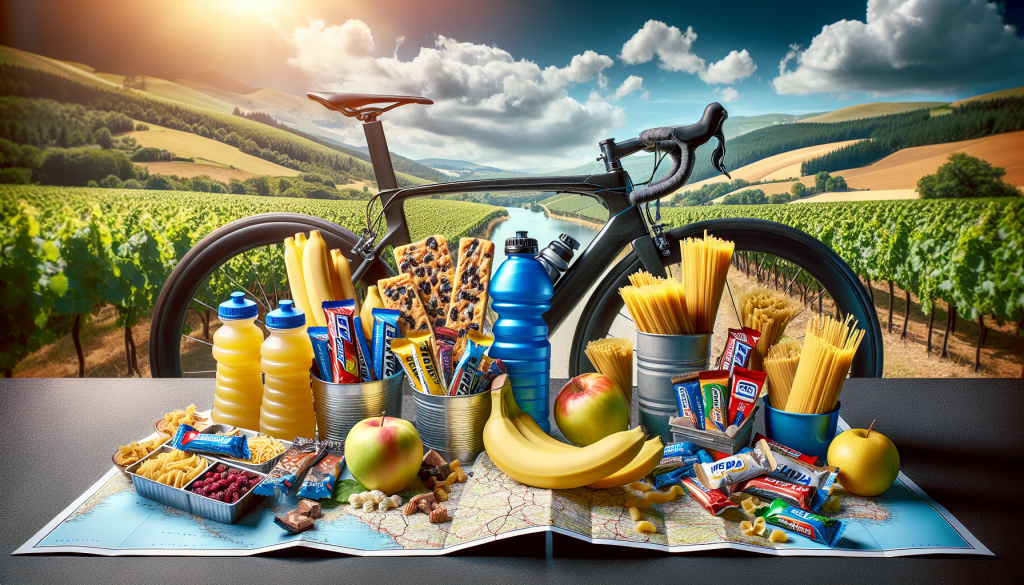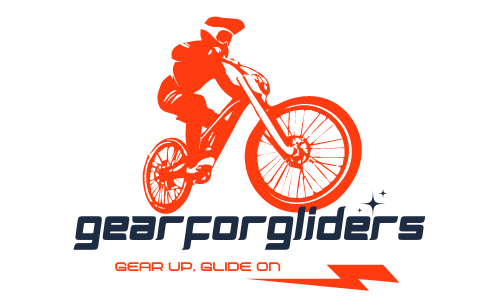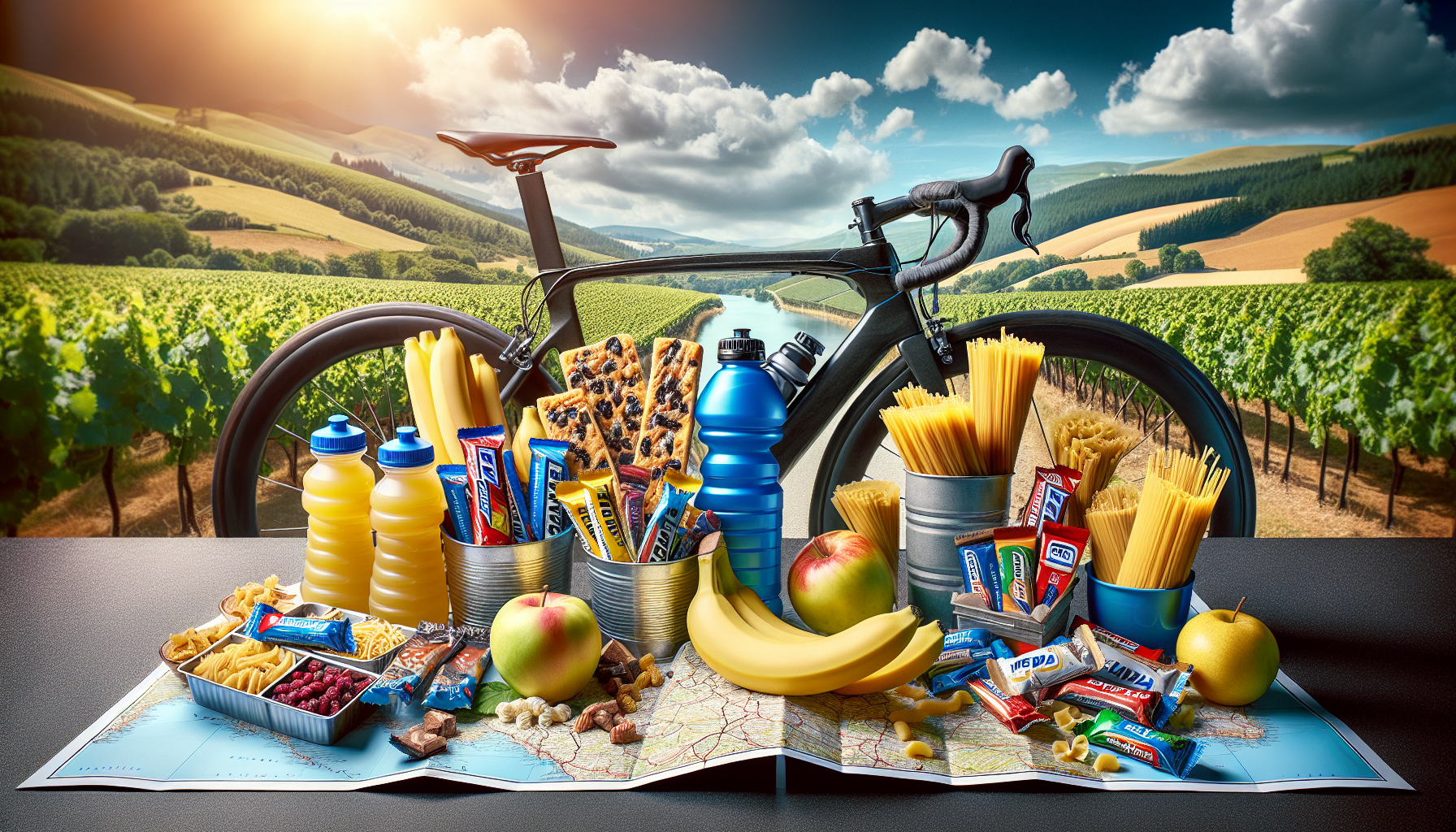Join the excitement of the prestigious Tour de France as we uncover the secret to fueling success for these remarkable athletes. Ever wondered what those incredible cyclists consume while tackling the grueling race? Discover the fascinating world of Tour de France riders and their unconventional, yet meticulously planned, selection of nourishment that keeps them pedaling through the challenging terrain. From carb-laden concoctions to specially crafted energy bars, get ready to dive into the incredible gastronomic journey of these awe-inspiring competitors.
What Do Tour De France Riders Eat While Riding?
Being a Tour de France rider is no easy feat. It requires immense physical endurance, mental strength, and strategic planning. One crucial aspect of a rider’s success is their nutrition during the race. Proper fueling and hydration are key to maintaining energy levels, supporting muscle recovery, and enhancing performance. In this article, we will explore the importance of nutrition in cycling, the pre-ride meal, fueling strategies during the race, carbohydrate and protein intake, fluid hydration, the role of energy bars and gels, the debate between real food and processed food, and overall nutrition strategies for a successful Tour de France.
Importance of Nutrition in Cycling
Nutrition plays a crucial role in the performance of a cyclist. Like any other athletic activity, fueling the body properly is essential for optimal performance in cycling. The energy expenditure during the Tour de France is enormous, and riders need to consume enough calories to sustain their efforts over the grueling stages of the race. Achieving the right balance and combination of nutrients is vital for maintaining energy levels, supporting muscle recovery, and enhancing overall performance.
Maintaining Energy Levels
Energy is the life-force that keeps a cyclist going during the race. To maintain high energy levels, cyclists need to consume a sufficient amount of carbohydrates. Carbohydrates are the primary source of fuel for the body, and the Tour de France riders rely heavily on them to power through each stage. Consuming enough carbohydrates before, during, and after the race helps replenish glycogen stores and keeps energy levels steady.
Muscle Recovery and Repair
Cycling is a physically demanding sport that places immense stress on the muscles. To aid in muscle recovery and repair, the riders need to consume adequate protein. Protein plays a crucial role in repairing damaged muscle fibers, preventing muscle breakdown, and promoting muscle growth and strength. Including sources of protein in their nutrition plan helps ensure that the riders’ muscles recover quickly and are ready for the next stage.
Enhancing Performance
The right balance of nutrients can significantly impact a cyclist’s performance. Apart from energy levels and muscle recovery, other performance-enhancing aspects, such as endurance, power output, and mental focus, can be influenced by proper nutrition. Balancing macronutrients, timing meals strategically, and staying hydrated all contribute to optimizing performance during the Tour de France.
Pre-Ride Meal
The pre-ride meal is a critical part of a cyclist’s nutrition plan. It prepares the body for the upcoming physical demands and ensures that glycogen stores are topped up for maximum energy availability during the race. Here are some considerations for a well-rounded pre-ride meal:
Timing and Composition
The timing of the pre-ride meal is crucial to allow for proper digestion before the race. Riders typically aim to eat their pre-ride meal 2-4 hours before the start. This timeframe allows for sufficient digestion and prevents discomfort during the race. The composition of the meal should include a balance of carbohydrates, protein, and healthy fats.
Carbohydrates and Glycogen Stores
Carbohydrates are the primary fuel source for endurance activities like cycling. Including carbohydrate-rich foods in the pre-ride meal helps ensure that glycogen stores are adequately replenished. Good sources of carbohydrates include whole grains, fruits, vegetables, and legumes.
Protein for Muscle Repair
Including protein in the pre-ride meal supports muscle recovery and repair. Lean sources of protein, such as chicken, fish, tofu, or legumes, can be included in the pre-ride meal to provide the necessary amino acids for muscle repair.
Including Healthy Fats
Healthy fats, such as avocados, nuts, and olive oil, can be beneficial for providing sustained energy during the race. Including a small amount of healthy fats in the pre-ride meal can help slow down the digestion of carbohydrates, providing a more steady release of energy.
Hydration
Proper hydration is crucial leading up to the race. Cyclists should ensure they are well-hydrated before the start by consuming water and electrolyte-rich fluids. Preparing a water bottle filled with electrolytes can help kickstart the hydration process before the race begins.

During the Race
Fueling strategies during the race can vary among riders based on individual preferences and physiological needs. However, there are some general guidelines and practices that most Tour de France riders follow to maintain their energy levels and performance throughout the stages.
Timing and Frequency of Eating
To prevent energy depletion, Tour de France riders strive to consume small and frequent meals or snacks during the race. The timing of these meals/snacks can vary depending on the duration and intensity of the stage. Generally, riders aim to eat every 30-60 minutes, ensuring a steady supply of nutrients throughout the race.
Eating on the Bike
Eating on the bike requires careful planning and coordination to avoid accidents and maintain a steady pace. Riders often opt for easily digestible foods that can be consumed quickly and provide the necessary carbohydrates and calories. Energy bars, gels, sandwiches, fruits, and energy drinks are some common food choices consumed on the go.
Common Foods Consumed
Energy bars and gels are popular choices among Tour de France riders due to their convenience and portability. These products are specifically designed to provide quick and easily digestible energy. Apart from these processed options, riders may also consume natural foods like bananas, rice cakes, energy balls, or sandwiches made with whole-grain bread and lean protein sources.
Individual Preferences
While there are some common foods consumed during the race, each rider may have their own preferences and choices based on their taste preferences and personal nutrition strategies. Some riders may have specific dietary restrictions or allergies that need to be taken into consideration, making it important for them to tailor their nutrition plan accordingly.
Importance of Snacking
Snacking is an essential aspect of a cyclist’s nutrition plan during the race. It helps maintain a steady supply of energy, prevents hunger, and avoids the onset of fatigue. Consuming small, nutrient-dense snacks regularly can keep the riders fueled and focused throughout the race.
Carbohydrate Intake
Carbohydrates are the main source of fuel for endurance activities like cycling. The intense physical demands of the Tour de France require riders to consume an adequate amount of carbohydrates to fuel their efforts. Here are some key considerations for carbohydrate intake during the race.
Importance of Carbs
Carbohydrates are broken down into glucose, which provides a readily available source of energy for the muscles. Consuming enough carbohydrates ensures that glycogen stores are topped up, preventing muscle fatigue and maintaining optimal performance.
Sources of Carbohydrates
Riders rely on a variety of carbohydrate sources to meet their energy needs. Common sources include whole grains, fruits, vegetables, legumes, energy bars, gels, and sports drinks. The choice of carbohydrate sources during the race depends on individual preferences, availability, and convenience.
Glycogen Depletion
Endurance activities like cycling can lead to glycogen depletion, which can result in a significant drop in energy levels and performance. To prevent glycogen depletion, riders must consume carbohydrates consistently during the race to replenish their glycogen stores.
Carbohydrate Recommendations
It is recommended that riders consume around 60-90 grams of carbohydrates per hour during the race. This can vary based on factors such as the intensity of the stage, duration, and individual needs. Consuming a combination of solid and liquid carbohydrate sources can help meet these recommendations and provide a steady supply of energy.
Protein Intake
While carbohydrates are the primary fuel source for cyclists, protein also plays a crucial role in their nutrition plan. Protein is necessary for muscle repair, recovery, and overall health. Here’s what you need to know about protein intake during the Tour de France.
Role of Protein in Cycling
Protein is essential for repairing damaged muscle tissue and supporting muscle growth. During the Tour de France, the constant physical exertion puts considerable strain on the muscles. Adequate protein intake helps with muscle recovery, preventing muscle breakdown, and optimizing overall performance.
Benefits of Protein
Apart from muscle repair, protein offers other benefits to cyclists. It helps maintain a strong immune system, supports the production of red blood cells that transport oxygen, and aids in hormone and enzyme synthesis. These functions are crucial for the overall health and performance of Tour de France riders.
Sources of Protein
Protein can be obtained from a variety of sources, including lean meats, poultry, fish, eggs, dairy products, legumes, and plant-based sources like tofu and tempeh. Riders often incorporate a combination of these sources into their nutrition plan to ensure sufficient protein intake.
Protein Recommendations
The recommended protein intake for endurance athletes is around 1.2-2.0 grams per kilogram of body weight per day. During the Tour de France, riders may aim to consume around 20-30 grams of protein within the first 30-60 minutes after completing a stage to support muscle recovery and replenish amino acid stores.
Fluid Hydration
Proper hydration is crucial for cyclists, especially during a physically demanding race like the Tour de France. Staying hydrated helps maintain performance, prevent dehydration, and regulate body temperature. Here are some key considerations for fluid hydration during the race.
Importance of Hydration
Water is essential for numerous bodily functions, including regulating temperature, transporting nutrients, and flushing out waste products. Cyclists need to stay properly hydrated during the Tour de France to maintain optimal physical and mental performance.
Water vs. Electrolytes
While water is the main hydrating fluid, Tour de France riders may also need to replenish electrolytes lost through sweat. Electrolytes, such as sodium, potassium, and magnesium, help maintain fluid balance and aid in muscle function. Riders may consume electrolyte-rich fluids or add electrolyte tablets to their water bottles to ensure adequate hydration.
Hydration Strategies
To stay hydrated during the race, riders need to have a hydration strategy in place. This includes sipping water consistently throughout the stage, even if they don’t feel thirsty, as thirst may not be an accurate indicator of hydration levels. Riders often have designated times to drink water or electrolyte-rich fluids to ensure they stay hydrated without compromising their pace.
Dealing with Heat
Cycling in hot conditions poses additional challenges to hydration. The risk of dehydration is higher, and riders may lose more fluids through sweat. To combat these challenges, riders must increase their fluid intake, wear appropriate clothing to facilitate cooling, and apply sunscreen to protect against sunburn and excessive heat exposure.
Energy Bars and Gels
Energy bars and gels have become staple nutrition options for Tour de France riders due to their convenience and functionality. These products are specifically designed to provide quick and easily digestible energy during the race. Here’s what you need to know about energy bars and gels.
Convenience and Functionality
One of the main reasons why riders rely on energy bars and gels is their convenience. These products are easy to carry, consume, and store. They provide a concentrated source of carbohydrates and calories, allowing riders to quickly refuel and maintain energy levels during the race.
Types of Energy Products
Energy bars and gels come in various flavors, sizes, and compositions. Some bars are nut-based, while others may contain oats, dried fruits, or chocolate. Energy gels, on the other hand, are usually in the form of a semi-liquid or gel-like substance that can be easily consumed on the go.
Energy Bars
Energy bars are compact and dense sources of carbohydrates, proteins, and fats. They are often fortified with vitamins and minerals to provide essential nutrients. Riders may choose different flavors and compositions based on their taste preferences and individual nutritional requirements.
Energy Gels
Energy gels are highly concentrated sources of carbohydrates. They are specifically designed to provide a quick burst of energy without the need for chewing or digestion. The gel-like consistency enables easy and quick consumption during the race.
Choosing the Right Product
With a wide variety of energy bars and gels available in the market, it’s essential for riders to choose the products that suit their needs and preferences. Factors like taste, texture, nutritional composition, and personal dietary restrictions should be considered when selecting energy bars and gels for the race.
Real Food vs. Processed Food
The debate between real food and processed food is always present when it comes to nutrition choices for athletes. Tour de France riders face the same dilemma when deciding what to consume during the race. Here are some considerations regarding the benefits and drawbacks of each option.
Benefits of Real Food
Real food refers to natural, whole foods that are minimally processed. These foods provide a wide range of nutrients, including vitamins, minerals, fiber, and phytochemicals. Real food options like fruits, vegetables, lean proteins, and whole grains offer numerous health benefits and are often delicious.
Nutritional Value
Real food provides a higher nutritional value compared to processed food. Natural foods are packed with vitamins, minerals, and antioxidants that support overall health and well-being. Additionally, real food offers a more diverse range of nutrients, ensuring that riders meet their nutritional requirements during the race.
Digestion and Absorption
Real food is generally easier to digest and absorb compared to highly processed alternatives. Whole foods contain a balance of fiber, protein, and healthy fats, which aid in digestion and provide a steady release of energy. The natural composition of real food allows for better absorption of nutrients, promoting optimal performance.
Processed Food Alternatives
While real food is highly valued for its nutritional benefits, processed food options like energy bars and gels have their own advantages. These products are specifically designed to provide quick and easily digestible energy, making them convenient for consumption during the race. They are also lightweight, portable, and have a longer shelf life.
Balancing Convenience and Quality
For most Tour de France riders, the choice between real food and processed food comes down to finding a balance between convenience and nutritional quality. While real food offers greater nutritional benefits, energy bars and gels provide a practical solution during the race. Riders often incorporate both options into their nutrition plan to ensure they have the necessary fuel and nutrients to perform at their best.
Post-Ride Recovery
Post-ride recovery is a crucial aspect of a cyclist’s nutrition plan. Proper recovery ensures that the body recovers from the physical stress of the race and prepares for the next stage. Here are some considerations for post-ride recovery nutrition.
Timing and Composition
Immediately after completing a stage, riders should aim to consume a recovery meal or snack within 30-60 minutes. This window is known as the “glycogen window” when the muscles are most receptive to replenishing glycogen stores. The recovery meal should include a combination of carbohydrates and protein to support muscle recovery and repair.
Carbohydrates for Glycogen Replenishment
Consuming carbohydrates after the race helps replenish glycogen stores that have been depleted during the stage. Good sources of carbohydrates for post-ride recovery include fruits, whole grains, sweet potatoes, and rice. The amount of carbohydrates consumed may vary depending on the intensity and duration of the stage.
Protein for Muscle Repair
Including protein in the post-ride recovery meal or snack aids in muscle repair and recovery. Lean sources of protein like chicken, fish, Greek yogurt, or plant-based alternatives like tofu and tempeh can provide the necessary amino acids for muscle repair and growth.
Fluids for Rehydration
Hydration is equally important for post-ride recovery. Replenishing fluids lost through sweat helps regulate body temperature, prevents dehydration, and supports overall recovery. Riders should aim to consume water, electrolyte-rich fluids, or recovery drinks to replenish fluids and electrolytes.
Nutrition Strategies for a Successful Tour de France
Successfully navigating the Tour de France requires careful and strategic nutrition planning. Here are some nutrition strategies to optimize performance throughout the race.
Tailoring Nutrition to the Race
Each stage of the Tour de France presents different challenges and demands. Riders need to tailor their nutrition plan to accommodate stage profiles, varying intensities, and potential weather conditions. Adapting fueling strategies to match the specific demands of each stage can enhance performance and help prevent energy depletion.
Individual Requirements
Cyclists have unique nutritional requirements based on factors such as body composition, metabolic efficiency, and training load. Understanding and accounting for these individual needs can help riders develop a personalized nutrition plan that optimizes their performance.
Monitoring Nutritional Needs
Regular monitoring of nutritional needs and adjustments to the nutrition plan are crucial for success. Riders should work closely with nutritionists or sports dietitians to assess their energy expenditure, muscle recovery, and overall well-being. Keeping track of weight, body composition, and performance indicators can aid in identifying any necessary adjustments to the nutrition plan.
Collaboration with Nutritionists
Tour de France riders often work closely with nutritionists or sports dietitians to develop individualized nutrition plans. These professionals have the knowledge and expertise to guide riders on fueling strategies, nutrient timing, and overall dietary recommendations. Collaboration with a nutritionist can help riders fine-tune their nutrition plan and ensure they meet their specific needs.
Experimenting and Adjusting
Nutrition is not an exact science, and what works for one rider may not work for another. Tour de France riders must be open to experimenting with different nutrition strategies to find what works best for them. Adjustments and refinements to the nutrition plan based on feedback, performance, and individual responses are crucial for success.
In conclusion, Tour de France riders pay meticulous attention to their nutrition during the race. Proper fueling and hydration are essential for maintaining energy levels, supporting muscle recovery, and enhancing overall performance. The pre-ride meal, fueling strategies during the race, carbohydrate and protein intake, fluid hydration, energy bars and gels, and the debate between real food and processed food all play a significant role in a cyclist’s nutrition plan. By following tailored nutrition strategies, Tour de France riders can optimize their performance and increase their chances of success in this demanding and prestigious race.

I’m James Gheen, the creator behind GearForGliders.com. As a mountain biking enthusiast, I understand the thrill of gliding through diverse terrains with confidence and agility. That’s why I’ve created this website to provide a comprehensive selection of mountain biking gear tailored to meet the needs of riders who prioritize smoothness, speed, and control. From high-performance bikes to specialized apparel and protective gear, I offer top-quality products that enhance your mountain biking experience. I also provide expert advice, reviews, and tips, creating a community of like-minded individuals who share a passion for the art of mountain biking. Gear up and glide on with GearForGliders.com.

